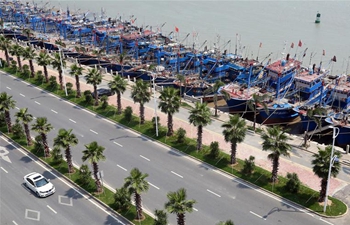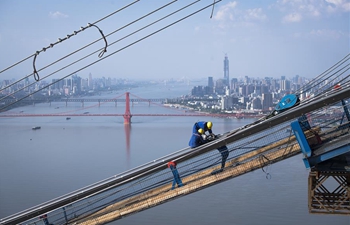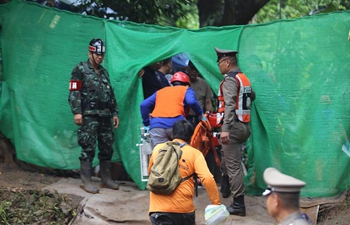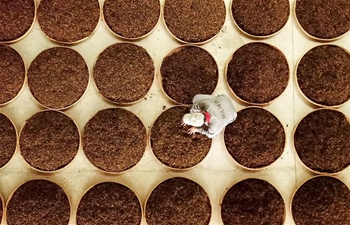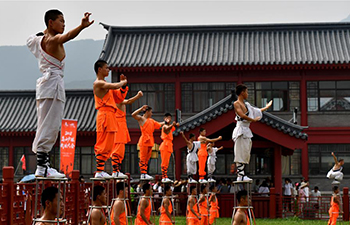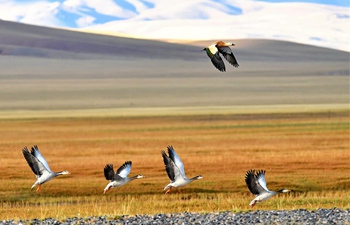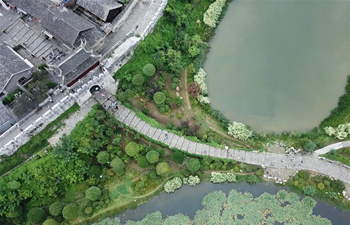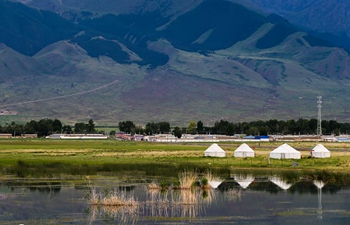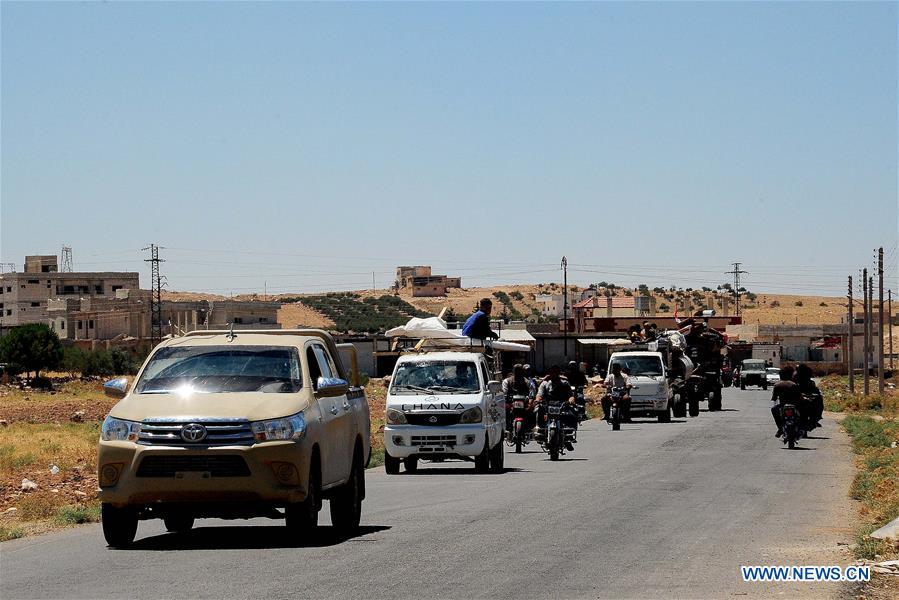 ?
?Rebels and their families leave the town of Nasib in the southeastern countryside of Daraa province in southern Syria, on July 9, 2018. More than 200,000 people have returned to their homes in the southern province of Daraa over the past few days after the Syrian army expanded its control and captured 72 percent of the province, a monitor group reported Monday. (Xinhua/Ammar Safarjalani)
DAMASCUS, July 9 (Xinhua) -- More than 200,000 people have returned to their homes in the southern province of Daraa over the past few days after the Syrian army expanded its control and captured 72 percent of the province, a monitor group reported Monday.
The people returned homes after fleeing toward the Syrian-Jordan border due to the military showdown which has been dragging on since June 19, according to the Syrian Observatory for Human Rights.
The London-based watchdog group said the Syrian army has continued to deploy along the Syrian-Jordan border against a rebel group allied with the Islamic State (IS) militant group.
A day earlier, the Syrian army captured a town and a military base in the western countryside of Daraa, following battles with the rebels who rejected the Russia-backed deal to settle the situation in Daraa.
The deal demands the rebels hand over their heavy weapons and allow government institutions to enter the areas they hold.
In the eastern countryside of Daraa, the army has captured almost all towns and villages and, most importantly, the Nasib border in the southeastern countryside of the province, which fell to the rebels in 2015 and returned under the government control on Friday.
The capture of the Nasib crossing secures the road between the capital Damascus and Jordan's capital of Amman.
However, the border is still closed as it has been since the rebels captured the crossing in 2015. A Syrian military officer told Xinhua that the opening requires a political decision from both countries.
According to the Observatory, the government has taken control over 72.4 percent of Daraa with the rebels' control shrinking to just 21 percent.
A rebel group allied with the IS controls 6.6 percent of Daraa, it said.
As the birthplace of the Syrian war that erupted in 2011, Daraa is both symbolically and militarily significant for the Syrian army because the rebels have been using the Jordanian border to bring in arms and fighters throughout the Syrian war.




